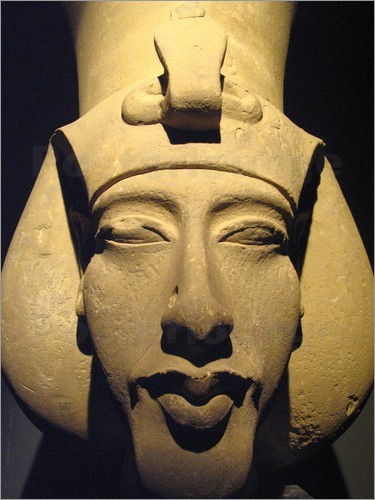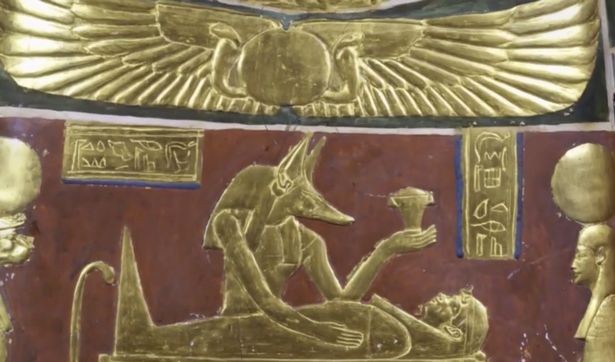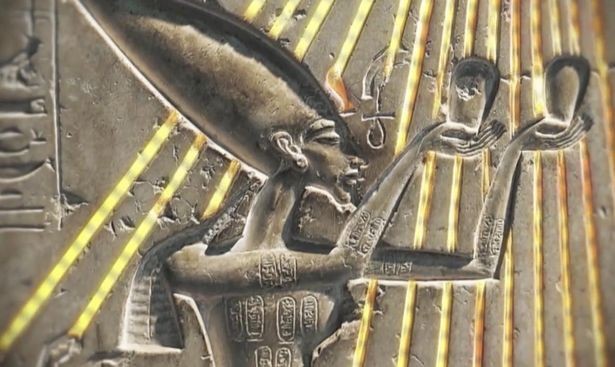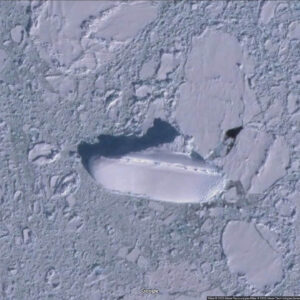Considered a heretic, removed from the official list of kings, and believed to be the child of aliens, the mysteries surrounding the ancient pharaoh Akhenaten still arouse extreme curiosity among researchers. history.
Akhenaten, also known as Amenhotep IV, was a pharaoh of the 18th dynasty of ancient Egypt. He ruled the country for a period of 17 years from 1351 BC (BC), until his death in 1336 BC. He was the husband of Queen Nefertiti and the father of the famous pharaoh Tutankhamun.

During nearly two decades of ruling Egypt, Akhenaten made many major changes to people’s lives, especially in religious matters. In other words, pharaoh Akhenaten is famous in history as a heretic king, converting religion from polytheism to worshiping a single god.
Specifically, from worshiping many different gods, Akhenaten asked the entire country to switch to worshiping only Aten – the sun god. Other significant changes that accompanied this decision included the construction of a temple dedicated to the god Aten, moving the palace to another city and, most controversially, the imposition of a temple tax on the people.
This action is considered unpopular with the Egyptian people as many working classes in society have to pay taxes to serve the temples of Aten.

Most historical documents related to pharaoh Akhenaten have been destroyed, making it difficult for historians and archaeologists to determine the true identity of the king’s supposed mummy.
However, the pharaoh’s religious reform ended when his son Tutankhamun ascended the throne and restored old religious values. Even ancient Egyptian history rejected this king and erased his name from history.
He almost completely disappeared from history until he was rediscovered in the 19th century in Amarna, the city he built for the god Aten. Early excavations at Amarna by Flinders Petrie aroused interest in the mysterious king, with a mummy unearthed in 1907 raising suspicions that it was his body. King Akhenaten.
However, what was found was pretty much ruined. Until now, historical and archaeological researchers still have a lot of controversy about whether the person lying in the tomb is really the father of the famous King Tutankhamun.

Recently, a group of experts participating in a documentary program about ancient aliens came up with a new hypothesis about the mummy of this king whose name was erased by Egypt.
Accordingly, these researchers believe that pharaoh Akhenaten’s remains may have been intentionally moved or destroyed.
Swiss archaeologist Giorgio A Tsoukalos, who believes that aliens are related to ancient people, cited the discovery in 1891 of another Italian archaeologist hunting for the mummy of King Akhenaten. tomb but could not collect any clues.
This group of experts said that King Akhenaten’s mummy was never actually in the tomb and that the pharaoh was actually of alien origin.
According to a few records, King Akhenaten had many mutations such as an egg-shaped head and unusually long fingers, creating the basis for the hypothesis that the king was the result of a combination of aliens and humans. .

The reason why the hypothesis that Pharaoh Akhenaten is related to aliens comes from the fact that when studying the mummy believed to be of this king, scientists discovered many unusual mutations such as a long face. out and the back of the head is shaped like an egg.
“The face is long with the lines of a snake, the back of the head is unusually long and has a round egg shape. The brain is 1.5 times larger than a normal person. But the long fingers are spider-shaped, the toes are “webbed legs like a frog’s legs. Big hips and a woman’s breasts” – some of the few historical records about the king also have similar content.
This hypothesis suggests that Akhenaten’s deformation was due to genetic inheritance. The pharaoh is the result of testing conducted by aliens from the star Sirius in space.
This conjecture has been mentioned in the legends of many peoples, including ancient Egypt. Accordingly, aliens do not directly mate with earthlings, but are artificially implanted by inserting their genes into the human body.





